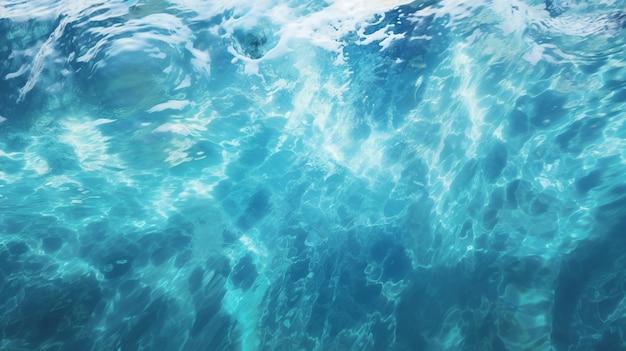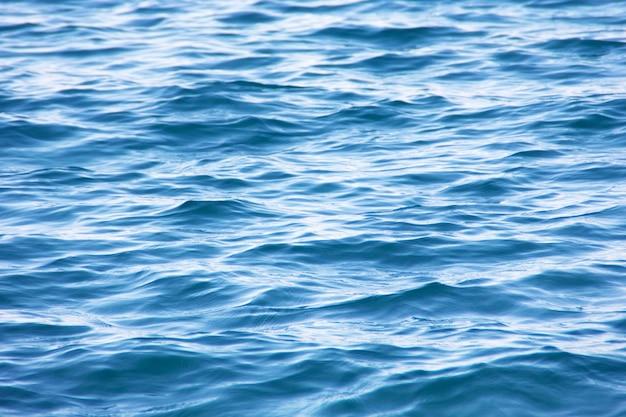The ocean, covering about 70% of the Earth’s surface, holds an abundance of water. Yet, it baffles many why we can’t simply filter out the salt and use it for drinking or other purposes. If you have ever wondered why we can’t filter ocean water, you’re not alone. In this blog post, we will dive into the science behind seawater filtration and explore the reasons why it remains a challenge.
Some questions that will be answered include: Can we create water? Why is the ocean blue? Can you boil sea water to get salt? Why don’t they use sea water to put out forest fires? Can you filter out ocean water? Which ocean is not salt water? And more. By the end of this article, you will gain a comprehensive understanding of the complexities involved in filtering ocean water and why it’s not as simple as it may seem.
So, let’s explore the mysteries of the ocean, its saltwater properties, and the limitations of current filtration technologies, all with the aim of quenching our curiosity about the vast reserves of water that surround us on planet Earth.
Why Can’t We Filter Ocean Water
Have you ever wondered why we can’t simply filter ocean water to meet our ever-growing demand for freshwater? It seems like a simple solution, right? Well, not exactly. In this article, we’ll delve into the fascinating world of ocean water filtration and explore the reasons why it’s not as straightforward as it may seem. So grab your snorkel and let’s dive in!
The Salty Conundrum
The main obstacle when it comes to filtering ocean water is its high salt content. You see, the average salinity of seawater is about 3.5%, which means that for every liter of water, there are approximately 35 grams of dissolved salts. And let’s face it, no one wants to quench their thirst with a glass of saltwater. It’s not only unpalatable but can also have adverse effects on our bodies.
The Energy Equation
Removing salt from ocean water requires a process called desalination, which involves separating the salt and other impurities from the water molecules. One common method is through reverse osmosis, where water is forced through a membrane to remove the dissolved salts. However, this process requires a significant amount of energy.
The energy-intensive nature of desalination poses several challenges. Firstly, it contributes to environmental concerns, as the energy required often comes from non-renewable sources like fossil fuels. In an era where sustainability is a top priority, relying heavily on energy-intensive processes is not the most environmentally friendly solution.
The Cost Conundrum
Another hurdle we face in filtering ocean water is the cost. Desalination plants are not cheap to build or operate. The infrastructure required for large-scale desalination projects is costly, and the maintenance and energy expenses are ongoing. As a result, the production cost of desalinated water is usually much higher than other freshwater sources, making it prohibitive for many regions, especially those with limited financial resources.
The Environmental Impact
Aside from the carbon footprint associated with energy-intensive processes, desalination can have other negative environmental impacts. The leftover brine, the highly concentrated salty solution produced during the filtration process, is discharged back into the ocean. This brine can harm marine life and disrupt the delicate balance of ecosystems if not properly managed.
The Technological Limits
Though technology has come a long way, we haven’t reached the stage where ocean water filtration can be done on a massive scale without major drawbacks. Research and innovation are still required to develop more efficient, affordable, and sustainable filtration methods. Scientists and engineers are tirelessly working on improving existing technologies and exploring new possibilities, but it will take time before we can implement widespread ocean water filtration as a viable solution.
The Bottom Line
While filtering ocean water may hold great promise for addressing freshwater scarcity, we currently face several challenges that hinder its widespread implementation. The salt content, energy requirements, high cost, environmental impact, and technological limitations all play a role in the complex equation of ocean water filtration. It’s a puzzle that scientists and experts continue to tackle, and with ongoing efforts, who knows? We might find better, more sustainable solutions in the future. In the meantime, let’s appreciate the vastness and beauty of our oceans while cherishing and conserving our freshwater resources.
FAQ: Why Can’t We Filter Ocean Water
Can We Create Water
No, we cannot create water. It is a basic compound made up of two hydrogen atoms and one oxygen atom, which cannot be synthesized artificially. However, through various processes like condensation, precipitation, and filtration, we can purify and reuse existing water sources.
Why Is the Ocean Blue
The ocean appears blue due to the way water molecules absorb and scatter sunlight. When sunlight enters the ocean, it interacts with the water molecules and causes the blue wavelengths to be scattered more than the other colors in the spectrum, giving the ocean its characteristic blue hue.
Can You Boil Sea Water to Get Salt
Yes, you can! Boiling seawater can be a method to obtain salt. When you heat seawater to boiling point, the water evaporates, leaving behind salt crystals. This process is called desalination and is commonly used in countries where freshwater is scarce.
Why Don’t They Use Sea Water to Put Out Forest Fires
While it may seem like a logical solution, using seawater to put out forest fires presents certain challenges. Seawater contains salt and other minerals that can harm plant life in forests, exacerbating the damage caused by fires. Additionally, the salt residue left behind after using seawater can contaminate the soil, making it less fertile.
Can You Filter Out Ocean Water
Yes, it is possible to filter ocean water through a process called desalination. Desalination removes the salt and other impurities from seawater, making it suitable for drinking and irrigation purposes. However, desalination is an energy-intensive and expensive process, which is why it is not extensively used on a large scale.
Which Ocean Is Not Salt Water
All the oceans in the world are saltwater bodies. However, there are some bodies of water, like the Caspian Sea and the Dead Sea, which have a significantly higher concentration of salt compared to the oceans.
Why Are Tears Salty
Tears are salty due to the presence of the same salts and minerals found in our blood. The composition of tears helps prevent bacterial growth and maintains the overall health of our eyes.
Will We Run Out of Water
While the Earth is abundant in water, the availability of freshwater resources is not infinite. With the increasing global population, pollution, climate change, and inefficient water management, there is a growing concern about water scarcity in some regions. It is crucial to conserve and manage our water resources sustainably to avoid a water crisis.
Can You Filter Sea Water with Your Shirt
Unfortunately, using your shirt to filter sea water won’t yield drinkable results. The fabric of a shirt is not designed to remove salts and impurities from water effectively. To filter out salt from seawater, specialized equipment and processes such as reverse osmosis or distillation are required.
Why Can’t California Use Ocean Water
While California has a vast coastline, using ocean water as a freshwater source is not a feasible option due to the high costs associated with desalination. Desalination requires a significant amount of energy and infrastructure, making it an expensive solution to address freshwater scarcity. However, some coastal areas in California have invested in desalination plants to supplement their water supply.
How Old Is the Water We Drink
The water we drink is a part of Earth’s natural water cycle, which has been in motion for billions of years. The water we have today has existed on our planet in various forms for millions of years, constantly circulating through the atmosphere, land, and oceans. So, when you take a sip of water, you might be experiencing a tiny taste of history!
Can Earth Run Out of Oxygen
Earth’s oxygen is continuously produced by plants and certain organisms through a process called photosynthesis. As long as these processes continue, oxygen will be replenished. However, changes in the environment, such as deforestation or major disruptions to marine ecosystems, could impact the production of oxygen and its availability to sustain life on Earth.
Can Seawater Freeze
Yes, seawater can freeze, but not at the same temperature as freshwater. The salt content in seawater lowers its freezing point, making it freeze at a lower temperature than freshwater. On average, seawater freezes at around -2°C (28°F).
Can Seawater Be Made Drinkable
Yes! Seawater can be made drinkable through the process of desalination. Desalination methods like reverse osmosis or multi-stage flash distillation can remove the salt and impurities from seawater, making it safe for consumption. However, as mentioned earlier, desalination is an energy-intensive process and is currently not widely accessible or cost-effective.
How Long Can You Survive Without Water
The human body relies on water for essential bodily functions, and the exact time one can survive without water varies depending on several factors. On average, a person can survive for about three to five days without water. However, this timeline can be significantly shortened in extreme heat or physical exertion. It is essential to stay hydrated and replenish your body with water regularly.
Can You Use Ocean Water to Put Out Fires
Using ocean water to extinguish fires is not recommended. Ocean water contains salt and other minerals that can corrode or damage firefighting equipment. Moreover, the salt residue left behind after evaporating the water can be detrimental to the environment and vegetation in fire-affected areas.
Can You Drink Rainwater
Rainwater can be safe to drink if properly collected and purified. However, it is essential to note that rainwater can pick up contaminants from the atmosphere and surfaces it contacts before reaching the collection point. To make rainwater suitable for drinking, it is recommended to filter and treat it through methods like boiling, using water purification tablets, or using specialized filtration systems.
Why Can’t We Just Filter Ocean Water
Filtering ocean water is not as simple as it sounds. Desalination, the process of removing salt and impurities from seawater, is an energy-intensive and costly process. It requires advanced technology and infrastructure to filter large quantities of water effectively. Furthermore, using seawater as a widespread freshwater source would have significant environmental implications, including the potential harm to marine ecosystems. Thus, alternative solutions like water conservation and efficient water management are vital to address freshwater scarcity.

